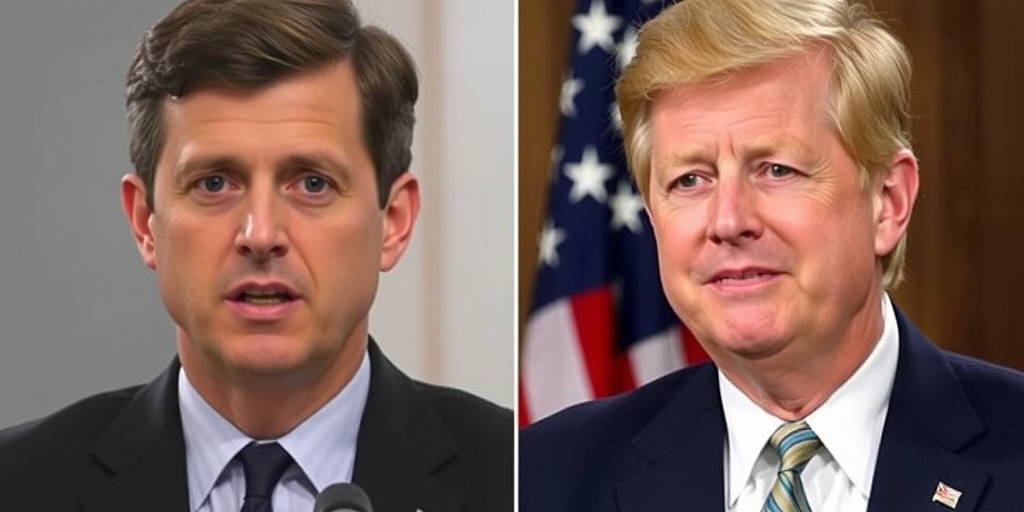Now Reading: Kennedy Suggests Poor Diet Tied to Measles Outbreak
-
01
Kennedy Suggests Poor Diet Tied to Measles Outbreak
Kennedy Suggests Poor Diet Tied to Measles Outbreak

Kennedy’s Controversial Approach to Measles Outbreak in Texas
In a recent expansive interview, Robert F. Kennedy Jr., the Secretary of Health and Human Services, outlined a controversial approach to address the growing measles outbreak in West Texas. The outbreak, primarily affecting a Mennonite community in Gaines County, has already infected nearly 200 individuals and led to the tragic death of a child—the first measles-related death in the United States in a decade.
During the interview, Kennedy offered a response that strayed significantly from established scientific consensus, heavily leaning on fringe theories about vaccines and alternative treatments. Although he called for vaccinations in the affected community, he emphasized that vaccination should be a personal choice, suggesting that the potential for vaccine-related injuries was more prevalent than documented evidence supports. This assertion contradicts the extensive research demonstrating the safety and efficacy of vaccines in preventing measles.
Kennedy made the unfounded claim that natural immunity from measles, acquired through infection, could also provide protection against cancer and heart disease. Medical research does not support this assertion, emphasizing instead that natural infection carries significant risks, including severe complications such as pneumonia and encephalitis. He also lauded dubious treatments like cod liver oil, citing local doctors who reported remarkable recoveries utilizing steroids and antibiotics.
The dire situation in Texas is underscored by another suspected measles death reported in nearby New Mexico, adding urgency to the response required from public health officials. Kennedy’s interview, which lasted around 35 minutes, aired on Fox News shortly before President Trump’s congressional address. It highlighted the tension between Kennedy’s skepticism of vaccines and the government’s long-standing endorsement of immunization as critical to public health.
Kennedy did acknowledge that vaccines are effective in preventing infection, specifically recommending vaccinations for communities with low immunization rates such as the Mennonites. However, his remarks created a conflicting narrative around vaccine safety, raising alarms about its potential risks while asserting that the choice to vaccinate is one that must be honored.
He alleged that a dozen children in the Mennonite community had suffered injuries from vaccines, a claim unsupported by scientific evidence, as the Measles, Mumps, and Rubella (M.M.R) vaccine has undergone extensive safety assessments. Though vaccines can have occasional side effects, health authorities assert that the benefits significantly outweigh these risks.
Kennedy argued for greater transparency about vaccine risks, stating a need for the restoration of public trust in health agencies. Nonetheless, many experts maintain that there is no credible evidence linking vaccines to the myriad health concerns posited by Kennedy. Responses from Health and Human Services pointed out Kennedy’s prior stance acknowledging the protective benefits of vaccines while maintaining that the decision to vaccinate must ultimately rest with individuals.
As the discussion about vaccine-induced immunity unfolded, Kennedy highlighted the controversial notion of "measles parties," where parents intentionally expose their children to the virus, suggesting he would not advocate for such actions, yet praised the notion of natural immunity gained from infection as more beneficial than vaccine-derived immunity.
While he recognized the severe nature of measles infections, Kennedy downplayed its lethality among healthy individuals, falsely suggesting that malnutrition is a primary factor contributing to severe illness during this outbreak. Texas health officials responded by clarifying that the deceased child had no known underlying health conditions, standing in stark contrast to Kennedy’s claims.
Healthcare professionals in the region have rebutted Kennedy’s assertions regarding malnutrition, emphasizing the overall healthiness of the Mennonite community, who often consume a diet rich in home-raised foods. They also pointed out that measles poses a risk to all children, regardless of nutritional status, and that unvaccinated individuals, particularly in outbreaks, are at a greater risk of severe outcomes.
Kennedy’s discussion of potential treatments, including steroids and antibiotics, for measles raised eyebrows among medical experts who find no credible data supporting these methods for viral treatment. The use of high-dose vitamin A is sometimes warranted in severe cases, but Kennedy’s recommendation of cod liver oil and other alternative treatments lacks robust scientific backing, raising concerns about public misperceptions.
As local physicians strive to mitigate the spread of the disease, Kennedy’s emphasis on unverified treatments could further complicate their efforts, leading communities to believe in miraculous cures rather than preventive vaccinations. The community currently faces the dual challenge of managing an outbreak while combating a tide of misinformation.
In conclusion, Kennedy’s unconventional approach and assertions depict a troubling departure from accepted public health strategies, potentially risking further spread of a preventable disease. The ongoing situation underscores the critical need for accurate communication and education regarding vaccines to ensure the well-being of all communities amid rising vaccine skepticism.
Stay Informed With the Latest & Most Important News
Previous Post
Next Post
-
 01New technology breakthrough has everyone talking right now
01New technology breakthrough has everyone talking right now -
 02Unbelievable life hack everyone needs to try today
02Unbelievable life hack everyone needs to try today -
 03Fascinating discovery found buried deep beneath the ocean
03Fascinating discovery found buried deep beneath the ocean -
 04Man invents genius device that solves everyday problems
04Man invents genius device that solves everyday problems -
 05Shocking discovery that changes what we know forever
05Shocking discovery that changes what we know forever -
 06Internet goes wild over celebrity’s unexpected fashion choice
06Internet goes wild over celebrity’s unexpected fashion choice -
 07Rare animal sighting stuns scientists and wildlife lovers
07Rare animal sighting stuns scientists and wildlife lovers





















